
A memorial table is used to display items that represent a person who died. It is generally set up for display at a funeral but can be present at any event, such as a wedding, to honor a loved one who has passed on. The items on the table will vary according to the event, but the purpose is the same: to celebrate a loved one's life. Do this by including items that will help tell the special stories of a loved one who has passed; and by including meaningful items, like flowers and candles, to symbolize spiritual principles like love and light.
Stories through Pictures
Tell stories of your deceased loved one's life through pictures. For a wedding, include pictures of the bride and/or groom with the deceased family member, advises Lyssabeth’s Wedding Officiants in an article entitled, “Honoring Deceased Family Members in your Wedding Ceremony.” For a funeral, use pictures to illustrate the interests of the memorialized person, suggests Next Gen Memorials in an article entitled, “How to Plan and Personalize a Memorial Service and Turn it into a Celebration of Life.” The pictures should depict your family member full of life and enjoying her favorite passions or activities. They should also include images of the people she loved in life.
Stories through Possessions
A memory table can contain items that belonged to the deceased that will illustrate what was most important to him. If he was a gardener, for example, place his gardening tools, or plants he nurtured, on the table. For a puzzle enthusiast, place a partially completed puzzle on the table next to his favorite chair. If you decide to use a memory book for a loved one who was a war veteran, you might include stories about his service time, along with metals or other memorabilia on the table. Include explanations of each item on small cards so your guests can read about the significance of each item.
Stories through Memory Cards
Memory cards allow your guests to contribute their own stories about your loved one. Place note cards and pens on the table or station someone to hand them out and ask your guests to add their memories. Collect the cards after the event and add them to your memory book.
Including a Floral Centerpiece
Many memorial tables include a floral centerpiece, but you can make the centerpiece a work in progress or indicative of the deceased person's passions. Give each person a flower to place into a vase on the memorial table. Have family members place vibrantly colored flower buds in the center to illustrate being surrounded by loving friends and family, Lyssabeth’s Wedding Officiants suggests. Use flowers that were favorites of your family member or spell out a meaning of that person’s life using floriography, the language of flowers. Place a card with an explanation of the message you are trying to communicate -- that your loved one is surrounded by loved -- near the vase.
Including Candles
Candles can illustrate the love or light your family member displayed or your loving remembrance of her. At a wedding or similar event, light the candles to symbolize the memorialized person’s watch over you or presence in your heart and mind during the event, Lyssabeth’s Wedding Officiants adds.
Related Articles

Ideas for a Casket Memory Box

DIY Funeral Guest Books

Church Memorial Gifts

How to Memorialize on a Death ...

How to Prepare a Mother's Day Service
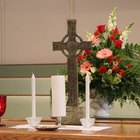
How to Honor the Deceased Mother of the ...
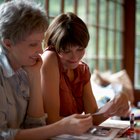
How to Make a Memory Book for a Gift

Ways to Honor a Sibling's Death on His ...

Ideas for a Photo Slideshow Movie for a ...
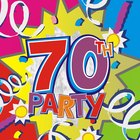
Centerpiece Ideas for a 70th Birthday ...
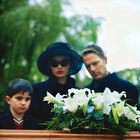
How to Write an Obituary for My Sister
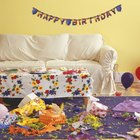
Birthday Guest Book Ideas
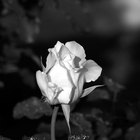
Sympathy Gifts for a Mother Losing Her ...

How to Address Place Cards for Weddings

What Is the Proper Thing to Do With ...

What Should I Do With My Wife's Ashes ...

Centennial Birthday Celebration Ideas

Gifts for Someone Whose Grandfather Has ...

How to Honor a Deceased Father at a ...

Wedding Reception Program Ideas
Writer Bio
Rev. Kathryn Rateliff Barr has taught birth, parenting, vaccinations and alternative medicine classes since 1994. She is a pastoral family counselor and has parented birth, step, adopted and foster children. She holds bachelor's degrees in English and history from Centenary College of Louisiana. Studies include midwifery, naturopathy and other alternative therapies.
Photo Credits
Jupiterimages/liquidlibrary/Getty Images